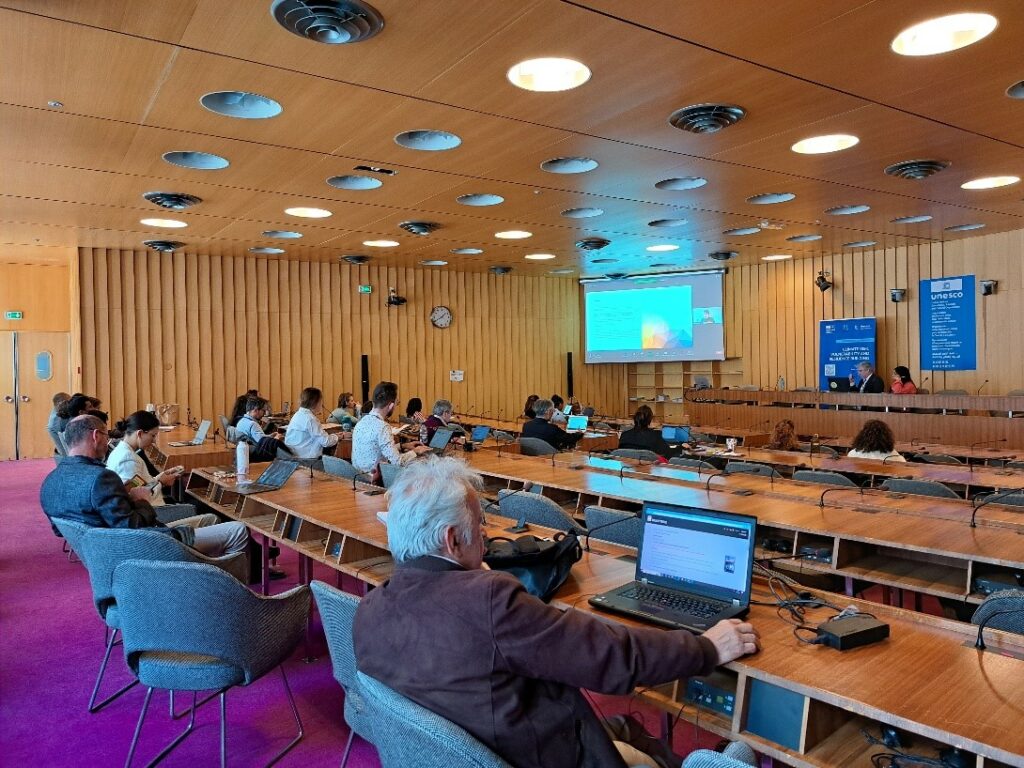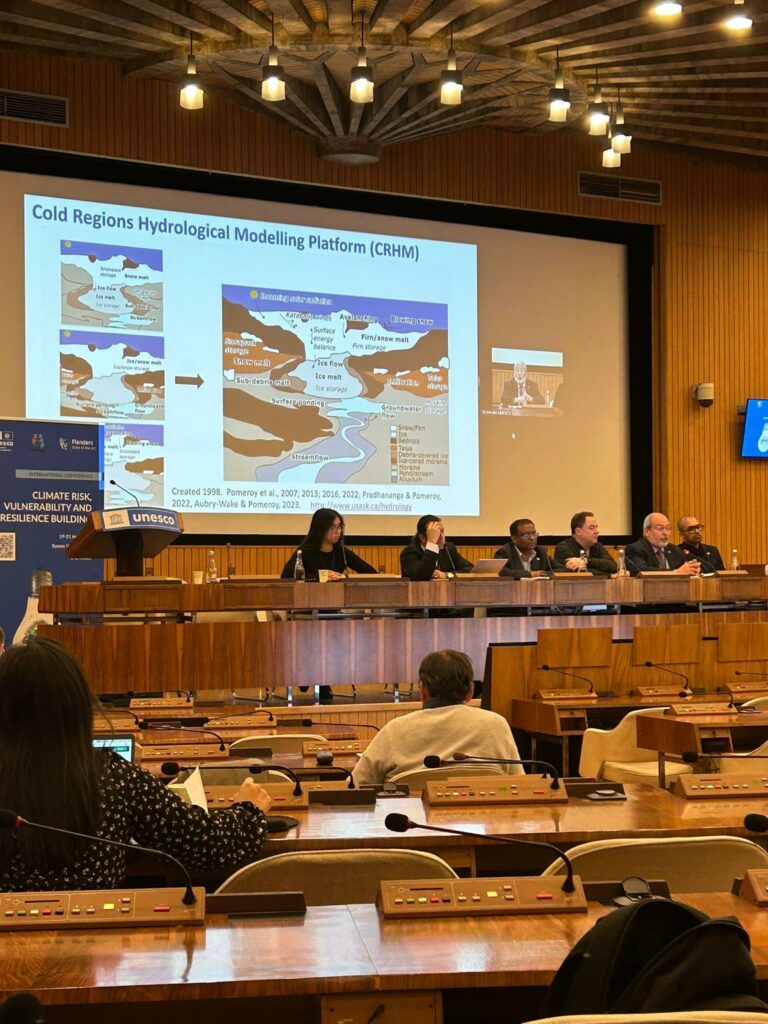The I-CISK project participated the UNESCO conference on Climate Risk, Vulnerability and Resilience Building
We are very happy to share that from 19 – 21 April, 2023, staff of IHE Delft – Micha Werner, Ilyas Masih and Sumiran Rastogi (PhD Candidate) participated in the UNESCO conference ‘International Conference on Climate Risk, Vulnerability and Resilience Building’. The conference attracted a large number of audience from different countries, with about 175 participants attended in person at UNESCO-HQ in Paris and over 700 joined online. The IHE Delft team represented the EU Horizon 2020 project I-CISK (Innovating Climate Service through Integrating Scientific and Local Knowledge). The project aims to innovate how climate information is used, interpreted, and acted on through a next generation of Climate Services that follows a human centred approach – integrating the knowledges, needs and perceptions of citizens, decision makers and stakeholders with climate information at spatial and temporal scale relevant to them.

The team contributed in two sessions during the conference:
- Technical session on ‘Monitoring the impacts of hydroclimatic risks and early warning system’, where Ilyas spoke about bridging science, policy, and decision-making gap in building the next generation of climate services. He showcased the co-creation approach used within the I-CISK project, and highlighted the role of multi actor platforms in bridging the science, policy and practice gap. This approach is currently being piloted across seven living labs of the project.
- Side event on Integrating local and scientific knowledge in climate services: Challenges, opportunities & way forward, was led by Micha and Sumiran. The side event explored how the local knowledges of users are recognised in climate services. We present a recent review of local knowledge in the context of disaster risk reduction (by invited speaker Thirze Hermans, Wageningen University), and then build on this following recent research in the context of I-CISK that explores the characterisation and concepts of local knowledge in the broader concept of climate services. During this interactive session, the participants were also invited to share their experiences of working with local knowledge, and the values and challenges it brings.

The UNESCO conference provided a unique opportunity to engage with other researchers, practitioners, and policymakers on the importance of building resilience against climate risks, especially floods and droughts; advancing citizen and open science, co-creation and the opportunity presented by local knowledge.
The sessions were instrumental in exchanging lessons learnt as well as building a common understanding of climate risks and vulnerabilities; what constitutes local knowledge and its role within climate services domains to address floods and drought risks. Few pictures shown below indicates the contribution of IHE team from the I-CISK project.